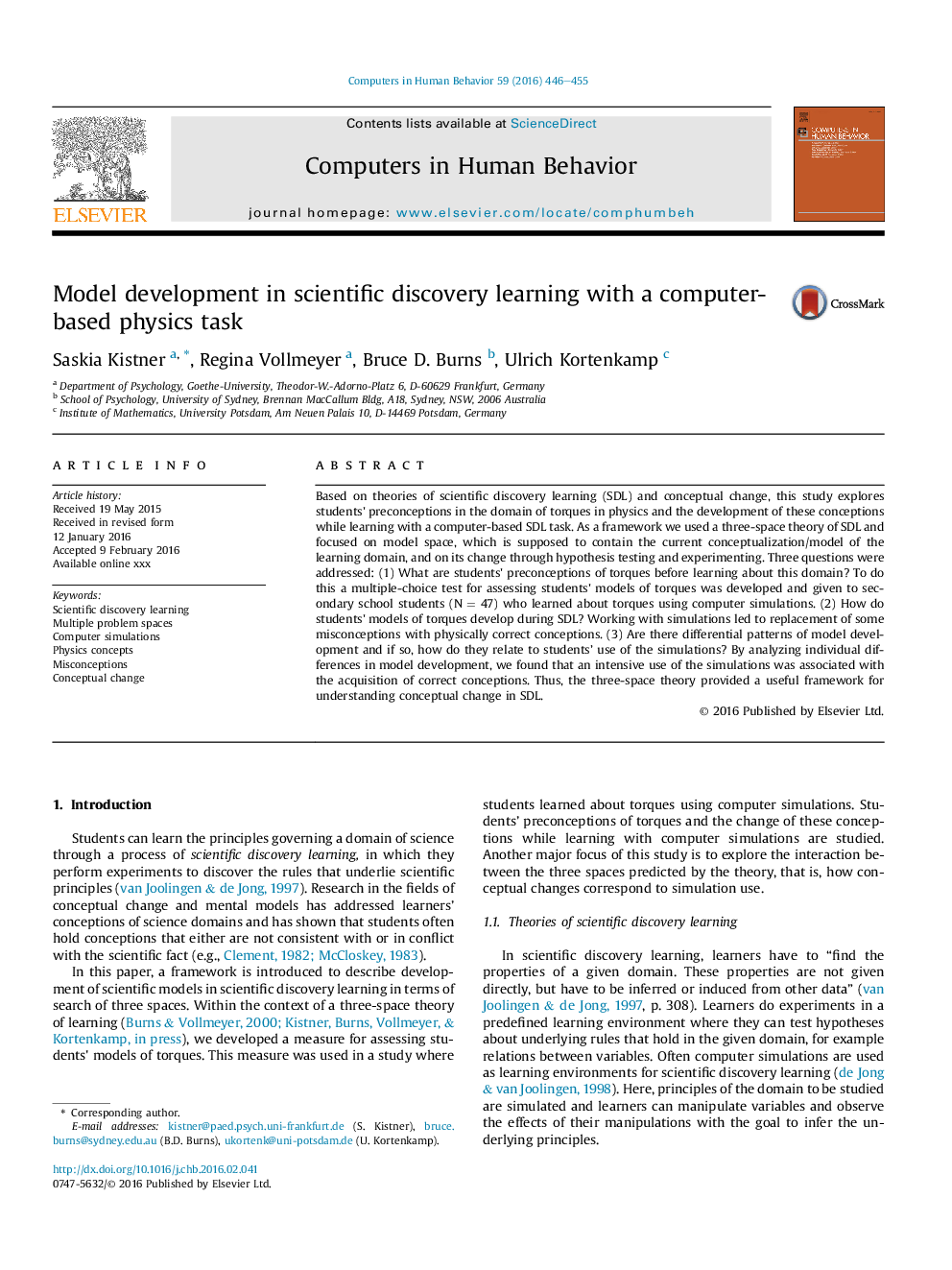| Article ID | Journal | Published Year | Pages | File Type |
|---|---|---|---|---|
| 6837500 | Computers in Human Behavior | 2016 | 10 Pages |
Abstract
Based on theories of scientific discovery learning (SDL) and conceptual change, this study explores students' preconceptions in the domain of torques in physics and the development of these conceptions while learning with a computer-based SDL task. As a framework we used a three-space theory of SDL and focused on model space, which is supposed to contain the current conceptualization/model of the learning domain, and on its change through hypothesis testing and experimenting. Three questions were addressed: (1) What are students' preconceptions of torques before learning about this domain? To do this a multiple-choice test for assessing students' models of torques was developed and given to secondary school students (NÂ =Â 47) who learned about torques using computer simulations. (2) How do students' models of torques develop during SDL? Working with simulations led to replacement of some misconceptions with physically correct conceptions. (3) Are there differential patterns of model development and if so, how do they relate to students' use of the simulations? By analyzing individual differences in model development, we found that an intensive use of the simulations was associated with the acquisition of correct conceptions. Thus, the three-space theory provided a useful framework for understanding conceptual change in SDL.
Related Topics
Physical Sciences and Engineering
Computer Science
Computer Science Applications
Authors
Saskia Kistner, Regina Vollmeyer, Bruce D. Burns, Ulrich Kortenkamp,
